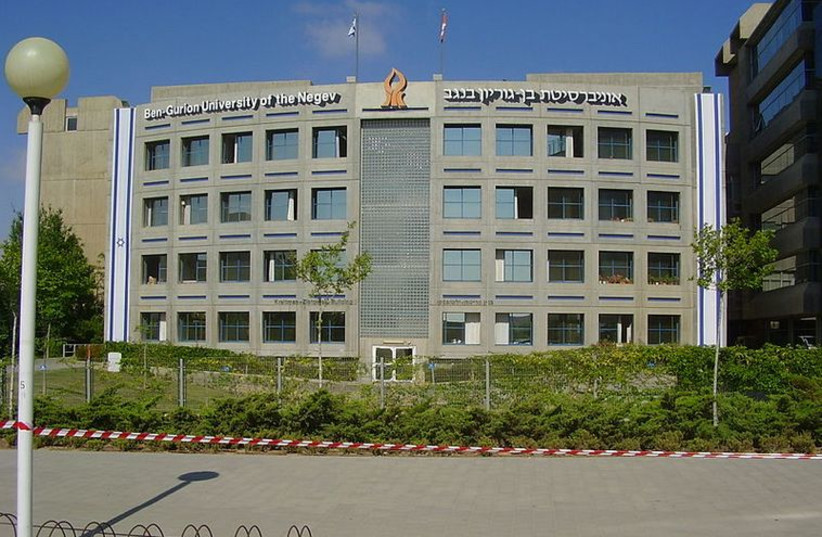Cybersecurity is obviously of paramount importance in today’s increasingly digital world. The area around Ben-Gurion University (BGU) of the Negev’s Marcus Campus in Beersheba is fast becoming a unique innovation district, the likes of which will surpass many other such places around the world. Here we have a confluence of four unique forces, academia, industry, government, and the military, that all contribute to the growing cybersecurity expertise.
As Prime Minister Netanyahu stated in 2019, “In Beersheba, there is Ben-Gurion University. This is where we’re putting our military intelligence. We’re going to put even more of that. This is where you have the central command center for defending the country against cyberattacks and the cyber park of some of the leading cybersecurity powers and it’s all within a 200-meter-walking distance. We’re creating in Beersheba now this complex that will encourage the same kind of development that I saw in MIT and you may have seen in San Francisco.”
“In Beersheba, there is Ben-Gurion University. This is where we’re putting our military intelligence. We’re going to put even more of that. This is where you have the central command center for defending the country against cyberattacks and the cyber park of some of the leading cybersecurity powers and it’s all within a 200-meter-walking distance. We’re creating in Beersheba now this complex that will encourage the same kind of development that I saw in MIT and you may have seen in San Francisco.”
Benjamin Netanuahu
If we’re going to be honest, it is not the same ecosystem as in MIT or San Francisco, it is much more. MIT and San Francisco do not have the Israeli Cyber Emergency Response Team (CERT) or the IDF’s Information Technologies base as integral parts of their ecosystems.
Just a little over half a year ago, the IDF’s School for Software and Data Professions opened in one of the hi-tech buildings in the Gav-Yam Negev Park, which is jointly owned by BGU and the Beersheba municipality. Over 900 soldiers study there and many of their commanders and teachers have started undergraduate degrees in information systems engineering at BGU in parallel to their service.
Within two years, they will be joined by 7,000 additional information technology soldiers when their new base opens adjacent to the university and the park. And in 2027, 15,000 more will join from the advanced intelligence base being built a few kilometers north of the university.

With these moves, the Beersheba region continues to add to its hub for cybersecurity innovation and excellence, with a growing number of startups and established companies working to protect our online lives.
The power of coffee
Why are they coming? Why is the Advanced Technologies Park of Gav Yam Negev full of over 3,000 engineers? Why is building #5 almost sold out before it’s built and building #6 is already being planned?
It is because of the power of coffee. Coffee is the fuel of innovation and only at BGU can engineers, soldiers, officers, students, start-upists, investors and academic researchers meet for coffee, all within walking distance, to dream of the future.
“The world is divided into two categories: those who are working to build a better future and those who are fighting to keep the past alive.”
ChatGPT (not David Ben-Gurion)
As David Ben-Gurion, the first prime minister of Israel, once said, “The world is divided into two categories: those who are working to build a better future and those who are fighting to keep the past alive.” But this quote of Ben-Gurion exposes a new cyber threat: generative artificial intelligence. I played with ChatGPT in crafting this piece. While we are still discovering its benefits, we have also discovered that generative artificial intelligence also lies. Ben-Gurion never said: “The world is divided into two categories: those who are working to build a better future and those who are fighting to keep the past alive.” ChatGPT made it up. It lied but it sounded good.
As we work to build a more secure future, we must be mindful of the constantly evolving challenges. This requires a commitment to continuous learning and innovation. That is why hubs like the Beersheba cyber ecosystem are so important. By bringing together experts from different fields and sectors, we can learn from each other and identify new ways to address the complex challenges that we face.
The writer is the president of Ben-Gurion University of the Negev. This op-ed was adapted from his opening remarks at the Cybertech Conference in Tel Aviv, last week. Ben-Gurion University is the academic sponsor of the conference each year.
